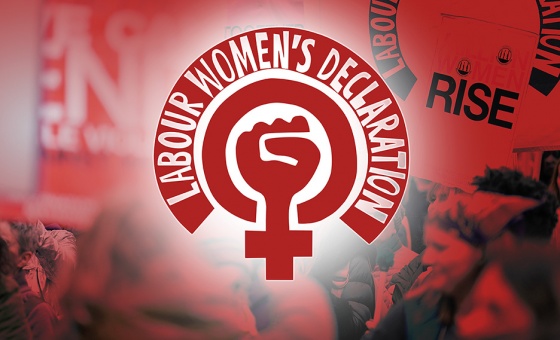This is the last article you can read this month
You can read more article this month
You can read more articles this month
Sorry your limit is up for this month
Reset on:
Please help support the Morning Star by subscribing here
LAST week the EU notified Beijing that, following a nine-month investigation into alleged unfair state subsidies, it will impose new tariffs of up to 38 per cent on Chinese electric vehicles (EVs).
Given the existing 10 per cent tariff on car imports, this will mean Chinese EVs will be hit with tariffs of up to 48 per cent. These new tariffs are due to kick in on July 4.
Germany, Sweden and Hungary have been vocal in opposing the move, with German Chancellor Olaf Scholz stating the obvious: “Isolation and illegal customs barriers ultimately just makes everything more expensive, and everyone poorer.”
Of course, this reflects the importance of the Chinese market for German car manufacturers, who will be hoping beyond hope that the authorities in Beijing haven’t been studying the Book of Exodus and thus are not minded to apply the principle of “an eye for an eye.”
BMW CEO Oliver Zipse commented: “The decision for additional import duties is the wrong way to go. The EU Commission is thus harming European companies and European interests.”
This sentiment was echoed by a spokesperson for Volkswagen: “The negative effects of this decision outweigh any potential benefits for the European and especially the German automotive industry.”
Indeed there seems to be little enthusiasm for these tariffs anywhere outside the White House. The Bloomberg editorial board argues that “tariffs won’t bring the EU prosperity” and that the increased price of EVs will decelerate Europe’s green transition.
Similarly, an article for Chatham House — titled “Imposing tariffs on Chinese electric vehicles will make the EU’s transition slower and more expensive” — notes that the EU has a legally binding target of reaching net-zero greenhouse gas emissions by 2050.
Meanwhile “decarbonisation technologies like solar panels, wind turbines and electric vehicles share a characteristic that sets them apart from other traded goods: when swapped for fossil fuel alternatives, they reduce the quantity of planet-warming gases being pumped into the atmosphere.” Such technologies “are needed in vast quantities, and in very short order, to give any chance of avoiding the worst impacts of climate change.”
It is noteworthy — and presumably not entirely coincidental — that the EU’s announcement came just a month after the Biden administration announced tariffs on Chinese EVs of 100 per cent.
In the case of the US, the material impact of these tariffs is virtually non-existent, given that Chinese-made models constitute just 2 per cent of all EV sales; and this in a market where EVs only make up 8 per cent of all car registrations (compared with almost 50 per cent in China).
The US tariff increase is simply an attempt by Biden to appear “tough on China” in the run-up to the presidential election. Donald Trump, not to be outdone on such matters, has promised tariffs of 200 per cent. As such, what we’re talking about is yet another component in the US-led new cold war on China, for which there is bipartisan consensus.
So it would appear the EU is acting in accordance with the strong recommendations (instructions) of Washington.
This certainly wouldn’t be the first time Europe has compromised its climate commitments and economic stability in order to participate in the US’s pursuit of 21st century hegemony.
In 2022, in order to punish Russia and to generate profits for the US’s domestic fossil fuel industry, the Biden administration heavily promoted sanctions on Russian natural gas. The result has been a major increase in US exports of fracked shale gas to Europe.
To get this gas from North America to Europe, it has to be liquified, stored at minus 70°C, and transported by ship. This whole process is extremely costly in both financial and ecological terms, certainly much more so than using existing pipelines running from Russia through Europe.
The European working class and progressive movement should oppose these tariffs on Chinese EVs and should resist the ongoing attempts by sections of the bourgeoisie to align Europe with Washington’s reckless foreign policy.
As noted in these pages in August last year, “major problems facing humanity require international co-operation — and China’s leading position in green technology makes co-operation in this field essential.”
China has raced ahead in renewable energy and electric transport because it has identified those sectors as being absolutely crucial for the future of not only China but the world.
As such, it has built environmental considerations into the core of its planning system and has targeted public investment accordingly. Rather than complaining about China’s investment in new productive forces, Europe should be following its example.
Imposing tariffs on the basis of Chinese public investment creates a precedent that any such central investment in sustainable development is unacceptable. This precedent would render any sort of green new deal out of the question.
Even the Economist acknowledges that “the potential gains to the West from a ready supply of cheap, green vehicles are simply enormous.” And, momentarily overcoming its Eurocentric instincts, it admits that Chinese cars “are not only cheap; they are better-quality, particularly with respect to the smart features in EVs that are made possible by internet connectivity.”
The article concludes that “if China wants to spend taxpayers’ money subsidising global consumers and speeding up the energy transition, the best response is to welcome it.”
Inasmuch as there’s such a thing as a sane bourgeois perspective, this is what it looks like.
In the words of former undersecretary-general of the UN and former executive director of the UN Environment Programme Erik Solheim: “China is now the indispensable country for everything green … And all historical experiences show that if you create closed-down markets and separate markets from different parts of the world, we will all be poorer.”
For the sake of peace, development and the habitability of the planet, Europe must change course.










